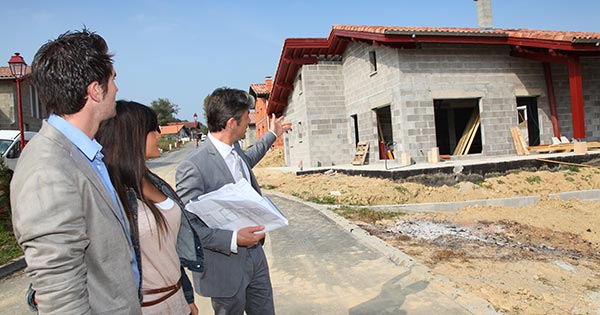Buying a house in Thailand can be a tricky affair when one considers that only a Thai can buy land or a house in Thailand. For many years expats have used a Thai company or their wife to hold the property in their names. Nominee holders are used so lets look at the most common usage. There has for years been talking about a property crackdown on nominee holders of property in Thailand and currently, there is much talk about it again. There are 4 more commonly used uses of the nominee structure and we will explain them briefly and why the current talk about a crackdown is raising its head yet again.
When getting married in Thailand most expats decide to buy a house. The locations tend to be in the Northern parts of Thailand such as Isaan, and they place the property which is usually a small house in the name of their wife as they are not allowed to own a house or land in Thailand. Now, normally the Land Department requires you to sign a document stating that you have no interest in the property which has worked fine for years. In reality, because of the law, most expats make use of a lease agreement of 30 years which is registered against the property with the Land Department so that in the event of a divorce, the agreement will ensure you of some bargaining power. This ‘lease’ is usually called a usufruct. Speak to a solicitor about its use. This is the most common nominee holding found in Thailand. How the crackdown affects this nominee holding remains to be seen as it would require the changing of the status of women in Thailand and I do not see the law going that far as it would be opposed by Thai women.
The other 3 methods have been well documented within the Thai press.
Firstly a 100% Thai company buying land does not need to be checked by the Land Department when it buys land. The property transfer does not need to be reviewed by the government as it is a 100% Thai company. Here again, your wife could be the owner and the question remains – will this affect the current setting up of Thai companies in the name of a spouse or will they only crackdown on what would be considered to be abuse.
Secondly and one which will be cracked down on is where a foreigner buys a 49% holding in a Thai company as a foreign company and proceeds to mortgage the property by a foreign company. Thirdly which is one that is also commonly used where a company is setup where the Thai holdings are 51% and the foreign holdings are 49%. The Land Department needs to check the property transaction and give their approval. Most times the 51% is held by the person’s Thai spouse as it is part of an internet cafe, nightclub or other forms of business.
If you are considering buying property speak to a property solicitor in Thailand with regards to property rights, shareholdings, and changes to the property laws in Thailand. With changes on the horizon with regards to the Treaty of Amity and WTO rules, property laws in Thailand will see some changes.
Speak to us today!


I have appreciate with getting lot of good and reliable, legislative information with your post. Thanks for sharing such kind of nice and wonderful post.